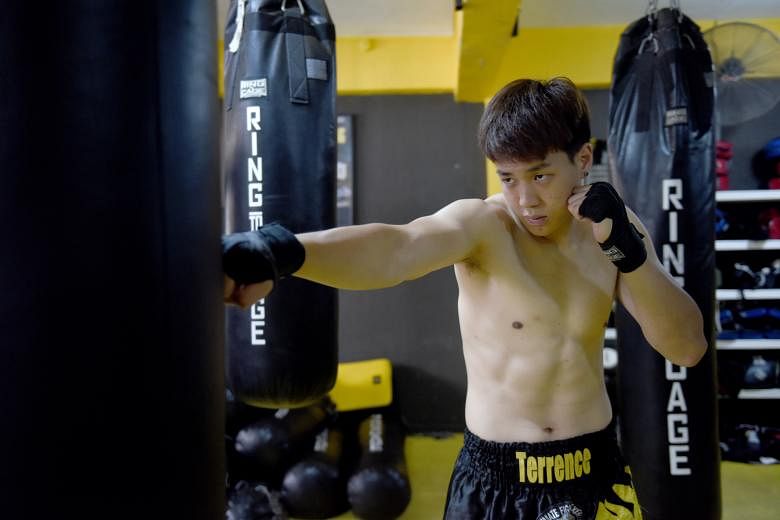Fights in bars. Boys in their late teens being paid $200 for a scrap in a makeshift ring. What these muay thai events have in common is that they are unsanctioned and probably unsafe.
Mervyn Tan is hoping that greater regulation, while not eliminating such unofficial bouts, will at least bring about a larger emphasis on safety in the sport here.
With muay thai granted provisional Olympic status recently, the president of the Amateur Muaythai Association of Singapore (Amas) says the sport will be regulated more stringently.
The martial art, along with cheerleading, were provisionally recognised as Olympic sports by the International Olympic Committee (IOC) earlier this month.
This provisional recognition period will last three years, at the end of which the sport can apply to be part of the Olympic Games sports roster.
Tan told The Straits Times: "Amas and other national federations now have a huge role to play in regulating the sport to ensure that proper protocols are followed.
"So things like trainers' qualifications and drug-testing by the World Anti-Doping Agency (Wada) are very important.
"We have to make sure these areas are well managed, because these factors play a huge role in determining whether muay thai will be considered a full Olympic sport."
In a nod to the sport's social and recreational aspect, he said: "Any enforcement by us has to be hand in glove with the government, so they have to clear with the relevant authorities on the measures related to things like organising events.
"For example, if fights are held in pubs and bars, there has to be a regulation and entertainment licence."
But he added: "You cannot get boys who are 18, 19 to fight and give them $200."
Tan added that there are three divisions in competitions - amateurs wearing full protective gear, semi-pros wearing partial protective gear and professionals fighting with out protective gear.
Children and teenagers aged 10 to 17 participate in the junior competition in full protective gear.
He also emphasised that it is especially crucial for trainers and gymnasiums here to adhere to proper safety protocols, as these parties take "frontline roles" in training students in the sport.
"The right people have got to be teaching the young kids who want to learn the sport, and there has to be proper insurance coverage," he added.
To ensure that training is standardised here, Tan said that Amas has implemented an annual trainers' validation exercise to centralise procedures via a grading system.
This exercise sees current and aspiring trainers from the association's 35 member clubs and gyms assessed by officials from the International Federation of Muaythai Amateur (Ifma), the world governing body for amateur muay thai. Tan is also the chairman of Ifma's legal commission.
Trainers whom ST spoke to welcomed the move for more regulation, with muay thai gym Strike Combat's chief trainer Christof Yew believing that this will help change the perception of the sport.
"A lot of parents might not allow their children to take part because they think muay thai is dangerous, so (such) control is good," said Yew.
The Amas-affiliated gym has five trainers hailing from Singapore, Chinese Taipei, Japan and Thailand with at least 10 years of experience each, and Yew said: "Our trainers come from different countries and they may have different training cultures, so it's better to standardise the practices here."
Sonthaya Dunpheri, the owner and head trainer of Bia Muay Thai Gym, said: "The certification is important because if I want to work in other organisations in the future, they would always need to look at it. If you have this piece of paper, you can work anywhere.
"Having it is better because in Singapore organisations want to see that you are certified."
•Additional reporting by Alvin Chia


